What is esthetician teeth whitening ?
- What is esthetician teeth whitening?
- Quick definition and business angle
- Who performs esthetician teeth whitening?
- Common whitening methods estheticians use
- Active ingredients: how whitening works
- Typical concentrations and what they mean
- Esthetician whitening vs. dentist whitening: key differences
- Safety considerations and common side effects
- Regulation and professional boundaries
- Choosing products for esthetician services: what to look for
- How estheticians integrate whitening into their service menu
- Why choose professional-grade supplies and OEM solutions
- Preparing clients and managing expectations
- Aftercare and maintenance for long-lasting results
- Conclusion: is esthetician teeth whitening right for you or your business?
- Summary and commercial recommendation
- Next steps for estheticians and buyers
- Frequently asked questions
What is esthetician teeth whitening?
Quick definition and business angle
Esthetician teeth whitening describes cosmetic, non-dental tooth-whitening services or treatments provided by licensed estheticians or beauty professionals. These services typically focus on improving smile brightness using topical products such as teeth whitening strips, whitening gels, whitening pens and LED-assisted at-home kits. For esthetician-owned salons and spas, offering these services can attract new clients and create retail opportunities for professional-grade teeth whitening kits and private-label products.
Who performs esthetician teeth whitening?
Licensed estheticians, beauty therapists and trained technicians deliver esthetician teeth whitening in spas, beauty clinics and aesthetic practices. Their role is cosmetic: they apply topical whitening formulations, recommend at-home maintenance products, and manage session timing and client comfort. Where local laws permit, estheticians can sell or apply over-the-counter (OTC) or professional-strength, non-prescription whitening products. Suppliers such as Double White provide ready-to-sell teeth whitening strips, gels, and pens — ideal for salons looking to stock professional products or develop private-label lines.
Common whitening methods estheticians use
Esthetician teeth whitening typically uses one or more of the following approaches, all of which can be sourced from manufacturers or wholesalers:
- Teeth whitening strips: thin, flexible strips coated with a peroxide-based whitening gel; easy to apply and popular for retail and salon use.
- Teeth whitening gels and syringes: higher-volume gels applied to custom or thermo-formed trays for at-home or in-salon use.
- Teeth whitening pens: portable pens for spot treatment and touch-ups between professional sessions.
- LED-assisted kits: low- to medium-intensity LED lights used with gel or strip systems to accelerate the whitening reaction and improve marketing appeal.
Each format has trade-offs—convenience, wear time and perceived strength—and estheticians often combine professional in-clinic sessions with at-home maintenance products.
Active ingredients: how whitening works
Most whitening products rely on peroxide chemistry. The two main active agents are hydrogen peroxide (H2O2) and carbamide peroxide (which breaks down into hydrogen peroxide and urea). These oxidizing agents penetrate tooth enamel and oxidize colored molecules that cause stains, resulting in a lighter tooth shade. Suppliers like Double White formulate strips, gels and pens with carefully measured peroxide concentrations to balance effectiveness and safety for spa or salon use.
Typical concentrations and what they mean
Concentrations vary by product type and legal restrictions. Over-the-counter products commonly contain lower peroxide levels than professional in-office systems. Take-home whitening gels frequently use carbamide peroxide in the 10–22% range (which equates to a lower percent of hydrogen peroxide), while some in-office systems used by dental professionals can contain higher hydrogen peroxide concentrations. Estheticians should source products that comply with local regulations and be transparent with clients about strength and expected results.
Esthetician whitening vs. dentist whitening: key differences
Understanding the difference helps clients choose the right option. Dental whitening performed by a licensed dentist typically involves higher-concentration peroxide products, clinical evaluation, and the ability to treat underlying oral health issues. Esthetician whitening focuses on cosmetic results using topical products and does not include diagnosis or treatment of dental disease. For clients with restorations, gum disease, extensive decay or unusual tooth discoloration, referral to a dentist is the responsible choice. For many cosmetic surface stains, esthetician-performed whitening with quality strips, gels or pens provides an accessible and affordable option.
Safety considerations and common side effects
Safety is essential. The most common temporary side effects are tooth sensitivity and gum irritation. Proper product selection, correct application, and short contact times reduce risk. Clients should be screened for contraindications—active cavities, cracked teeth, exposed dentin, pregnancy or breastfeeding, and severe gum disease—before any whitening service. Estheticians should follow training protocols and manufacturer instructions, and recommend professional dental evaluation when indicated. Reputable manufacturers like Double White include technical specifications, safety data and usage guidelines to support safe salon or spa operations.
Regulation and professional boundaries
Regulatory requirements for teeth whitening vary by country and sometimes by state or province. In many jurisdictions, the sale and use of higher-concentration peroxide products are restricted to dental professionals, while lower-concentration OTC products are available to estheticians and consumers. Estheticians and spa owners must confirm local regulations and purchase compliant products. Partnering with experienced manufacturers who understand export standards and regulatory labeling—such as Double White—helps ensure legal compliance and easier market entry for resellers and private-label customers.
Choosing products for esthetician services: what to look for
When selecting teeth whitening strips, gels or pens for salon use, consider efficacy, safety documentation, packaging, and supplier support. Important commercial criteria include clinically validated formulations, Material Safety Data Sheets (MSDS), Certificate of Analysis (COA), customizable packaging, MOQ (minimum order quantity), and reliable sampling policies. Double White, as a leading teeth whitening kit supplier in China, offers free samples and OEM/private-label customization—useful for estheticians and salon owners who want bespoke branding and packaging for retail shelves or treatment menus.
How estheticians integrate whitening into their service menu
Adding teeth whitening can increase average visit value and encourage repeat business. Typical approaches include offering express whitening touch-ups (e.g., whitening pen or short strip session), full take-home kits sold as retail, and package deals combining facial aesthetics with smile enhancement. Training, clear consent forms, before-and-after photography, and maintenance product upsells (whitening toothpaste, pens) help estheticians create profitable, compliant services that improve client satisfaction.
Why choose professional-grade supplies and OEM solutions
Professional-grade whitening strips and gels deliver more consistent results and better client experience compared with generic OTC items. For estheticians who want to resell or launch a branded product, OEM and private-label options let salons control packaging, branding and formulation within regulatory limits. Double White specializes in supplying teeth whitening strips, gels, pens and kits with customization options, which helps businesses scale from local retail to international distribution while maintaining product quality and scientific backing.
Preparing clients and managing expectations
Clear client education improves satisfaction. Before treatment, estheticians should explain likely outcomes, number of sessions required, sensitivity risk and the effect of dietary habits (coffee, tea, wine, tobacco) on relapse. Providing an individualized plan—such as a salon whitening session followed by a bespoke take-home kit—helps set realistic expectations and maximize aesthetic results. Good aftercare instructions and retail availability of whitening pens or strips help clients maintain a brighter smile between visits.
Aftercare and maintenance for long-lasting results
Maintaining results requires simple habits: avoid stain-causing foods and drinks for 48–72 hours after treatment, use a soft toothbrush, and incorporate a whitening toothpaste or periodic whitening pen touch-ups into the routine. For clients with higher staining risk, a scheduled maintenance kit—whitening strips or gels every few months—can prolong results. Estheticians can create recurring revenue by offering maintenance packages and selling branded or OEM whitening products from trusted suppliers like Double White.
Conclusion: is esthetician teeth whitening right for you or your business?
Summary and commercial recommendation
Esthetician teeth whitening is a practical, cosmetic option for clients seeking a brighter smile without dental office visits. It’s well suited for surface stains and maintenance of prior dental whitening treatments. For estheticians and salon owners, adding whitening services and retailing professional-grade teeth whitening strips, gels and pens can diversify revenue streams. Success depends on product selection, compliance with local regulations, staff training, and clear client communication. Partnering with an experienced manufacturer and supplier—such as Double White, which offers OEM, free samples and customizable packaging—helps businesses reliably introduce professional whitening products and services to their markets.
Next steps for estheticians and buyers
If you operate a spa, salon or online retail store and are evaluating teeth whitening lines, request product samples, review safety documentation, and confirm labeling compliance in your target market. Consider private-label options to strengthen Double White. Double White’s R&D and manufacturing capabilities in oral care can support product development, regulatory documentation and packaging customization to accelerate your go-to-market plan.
Contact suggestion: Visit https://www.double-white.com/ to request samples, review product specifications for teeth whitening strips, gels and pens, and explore OEM/private-label opportunities.
Frequently asked questions
Q: Can estheticians legally whiten teeth in my area?A: Regulations differ by country and region. Some jurisdictions allow estheticians to use low- to medium-strength OTC whitening products, while higher-concentration peroxide treatments are restricted to dentists. Check local laws and supplier guidance before offering services.
Q: Are whitening strips and gels safe when used by estheticians?A: When products are used according to manufacturer instructions, safety protocols are followed, and clients are screened for contraindications, whitening strips and gels are generally safe. Common temporary effects include sensitivity and mild gum irritation.
Q: How long do results from esthetician whitening last?A: Results vary with individual habits and stain sources. Many clients see noticeable improvement that lasts months; maintenance treatments or touch-up strips/pens every few months can extend results.
Q: What’s the difference between hydrogen peroxide and carbamide peroxide?A: Hydrogen peroxide is the active oxidizer; carbamide peroxide breaks down into hydrogen peroxide and urea. Carbamide peroxide releases hydrogen peroxide more slowly and is commonly used in take-home gels, while hydrogen peroxide is often used in faster-acting systems.
Q: Should I buy whitening kits wholesale or private-label from a supplier like Double White?A: If you plan to resell products or build a branded line, private-label/OEM options let you customize packaging and formulations within regulatory limits. For smaller initial orders or testing, request free samples to assess quality and client response.
Recommended for you
Should I Brush After Using Whitening Strips? A Guide by Double White
Expired Whitening Strips? Check This! - Double White
Fix White Spots After Whitening Strips - Double White
Get a Brighter Smile with Up and Up Whitening Strips from Double White
About Product Choice
What types of teeth whitening products does your company offer?
We offer a variety of product types for you to choose from, including teeth whitening patches, teeth whitening pens, and teeth whitening kits.
Can free samples be provided?
Yes, we can provide some free samples for you to test and evaluate, please contact our sales team for specific details.
About Solution Suggestions
How do I choose a teeth whitening product that’s right for me?
You can choose the right teeth whitening product for you based on your dental condition, needs and expected results, or ask our sales team for advice.
About Customized Services
Is there a minimum order quantity requirement for customization services?
Customized services may have minimum order requirements based on your specific needs and product type, please consult our sales team for details.
What is the minimum order quantity (MOQ)?
Yes, the MOQ for teeth whitening strips is 500 boxes.

HP Teeth Whitening Alcohol-free Strips HPNA-01
Discover Double White’s HP Teeth Whitening Alcohol-free Strips HPNA-01, the best teeth whitening strips designed for a brighter smile without irritation. Alcohol-free formula ensures gentle yet effective whitening. Achieve professional results safely and easily at home with these top-rated teeth whitening strips.

HP Teeth Whitening Alcohol-free Strips HPNA-02
Double White’s HP Teeth Whitening Alcohol-free Strips HPNA-02 offer effective, gentle whitening without alcohol. These best whitening teeth strips deliver visible results, making them the good teeth whitening strips choice for a brighter smile. Try our whitening strips for teeth today!

Hydrogen Peroxide Residue Free Teeth Whitening Strips RFHP01
Double White Hydrogen Peroxide Residue Free Teeth Whitening Strips RFHP01 deliver the best quick teeth whitening results without residue. These best teeth whitening strips offer safe, effective brightening for a confident smile. Experience one of the best teeth whitening products today.

Hydrogen Peroxide Residue Free Teeth Whitening Strips RFHP02
100% tooth surface residue-free teeth strips represents the latest white teeth technology. This new product has strong adhesion on the teeth, but when peeled off, no gel-like substance remains on the tooth surface, leaving the teeth bright. Like new, no cleaning required.
Send us your inquiry
Reach out to us through the form below or via the contact information provided.
Our dedicated team is committed to providing prompt and personalized responses to all your queries.
Please fill out the fields above with your full name, email address, and comment.
Copyright © 2025 Double White All Rights Reserved. Designed by gooeyun

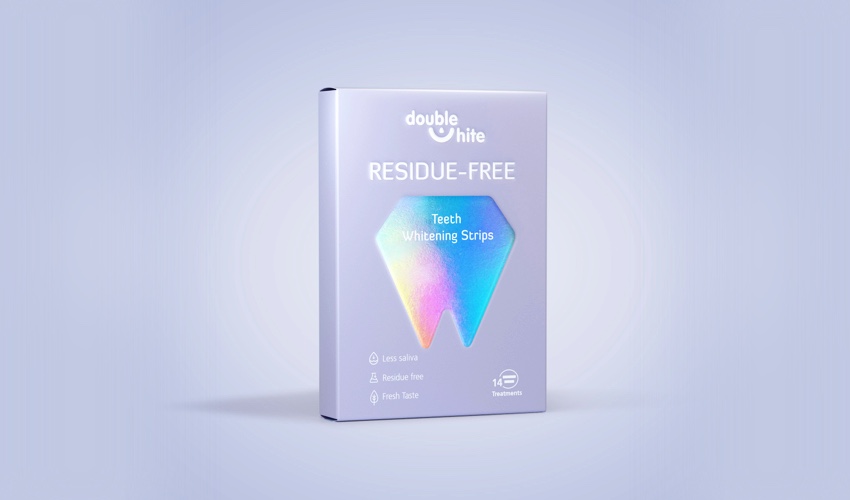
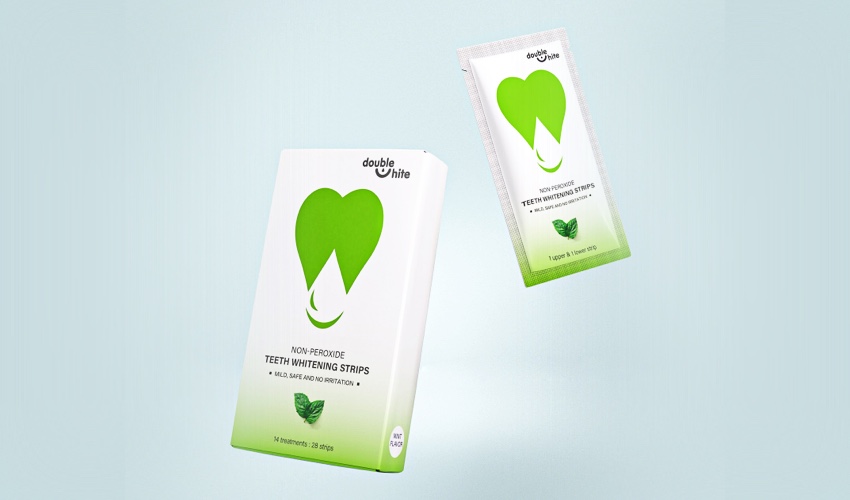
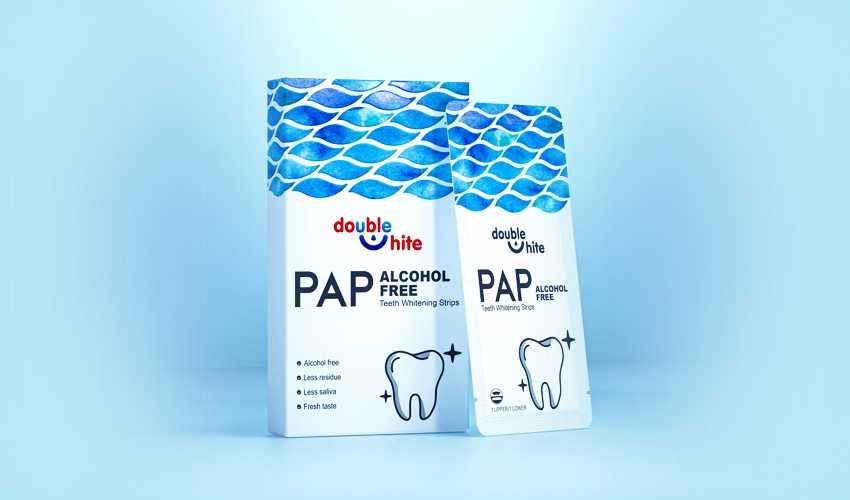
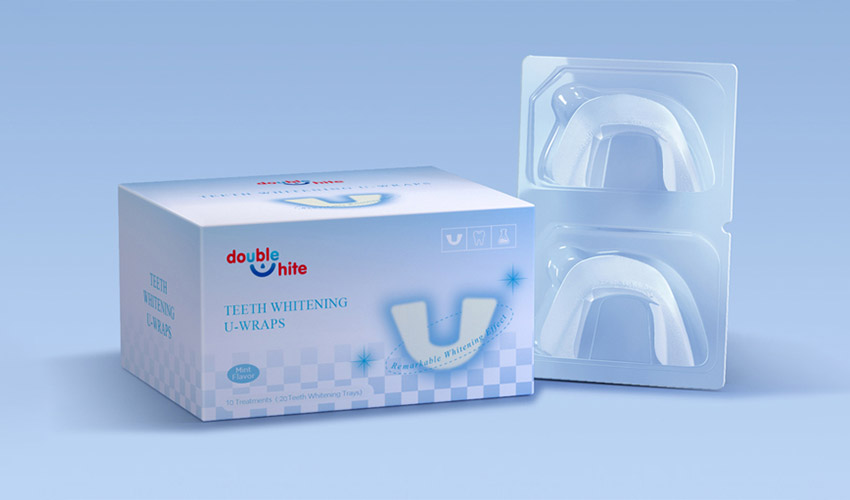
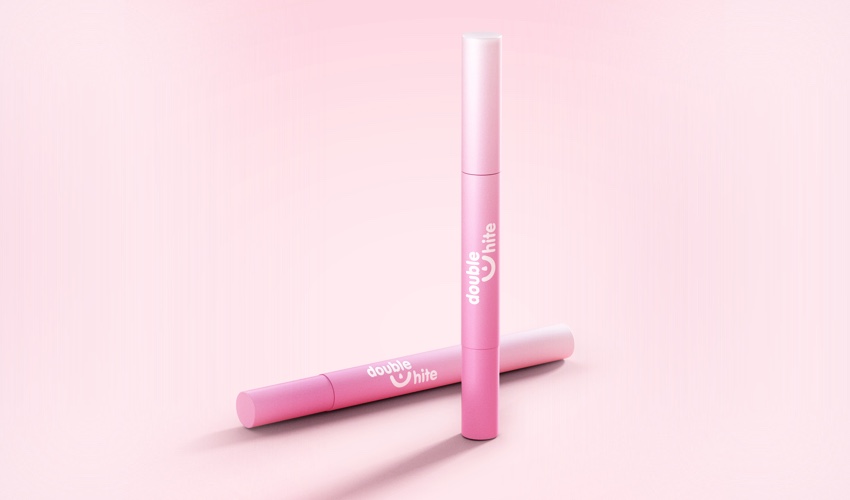
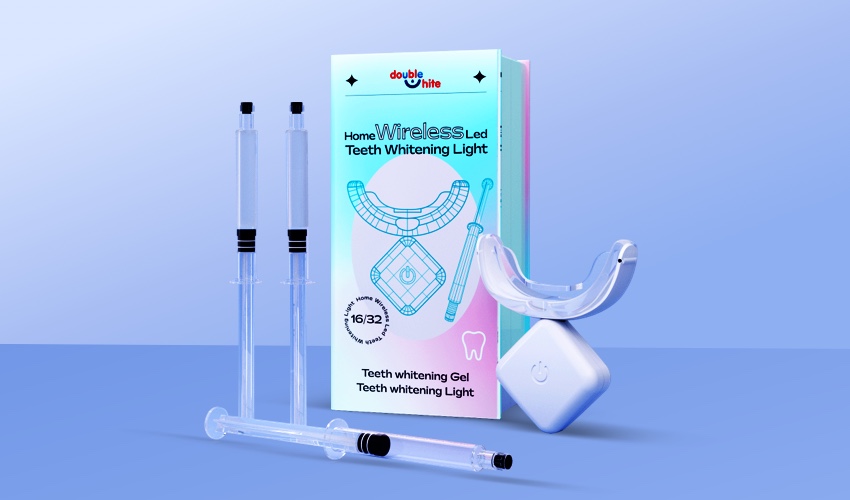
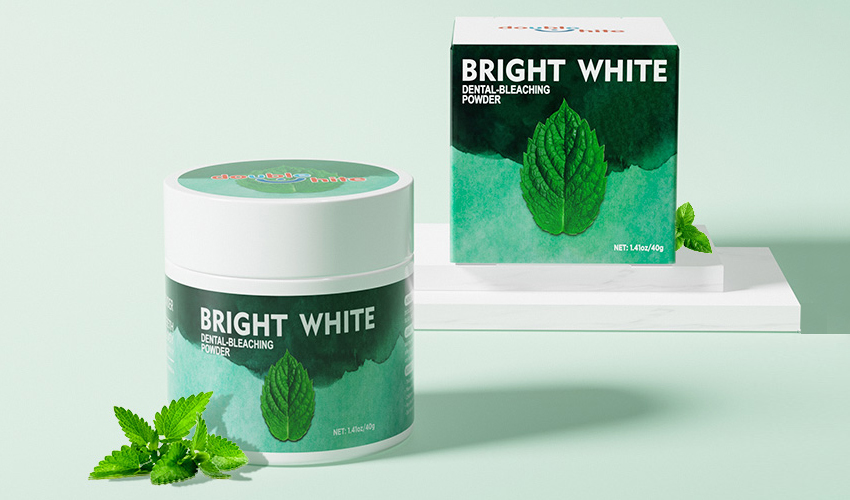






Whatsapp: +8615920313473
cndoublewhite
Doublewhite
doublewhitecn
cndoublewhite
cndoublewhite